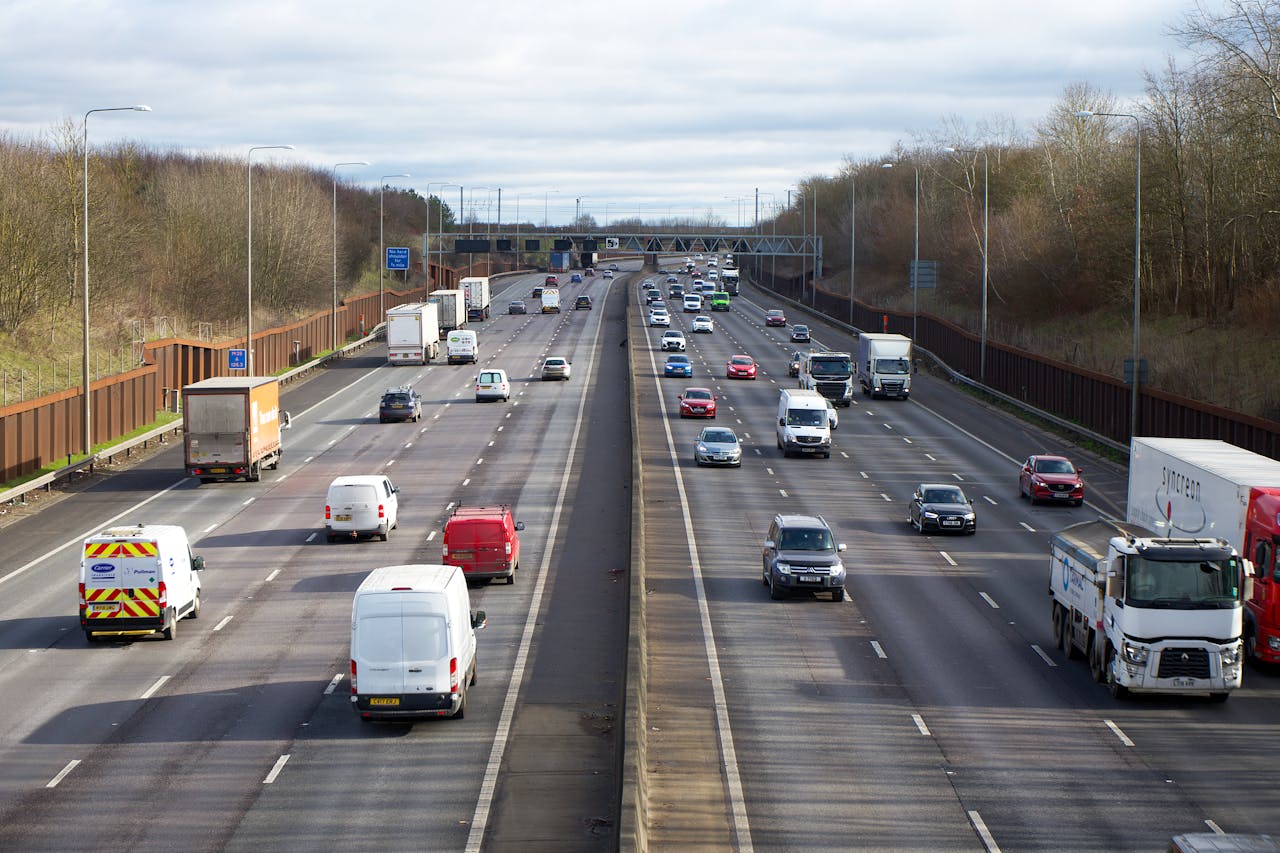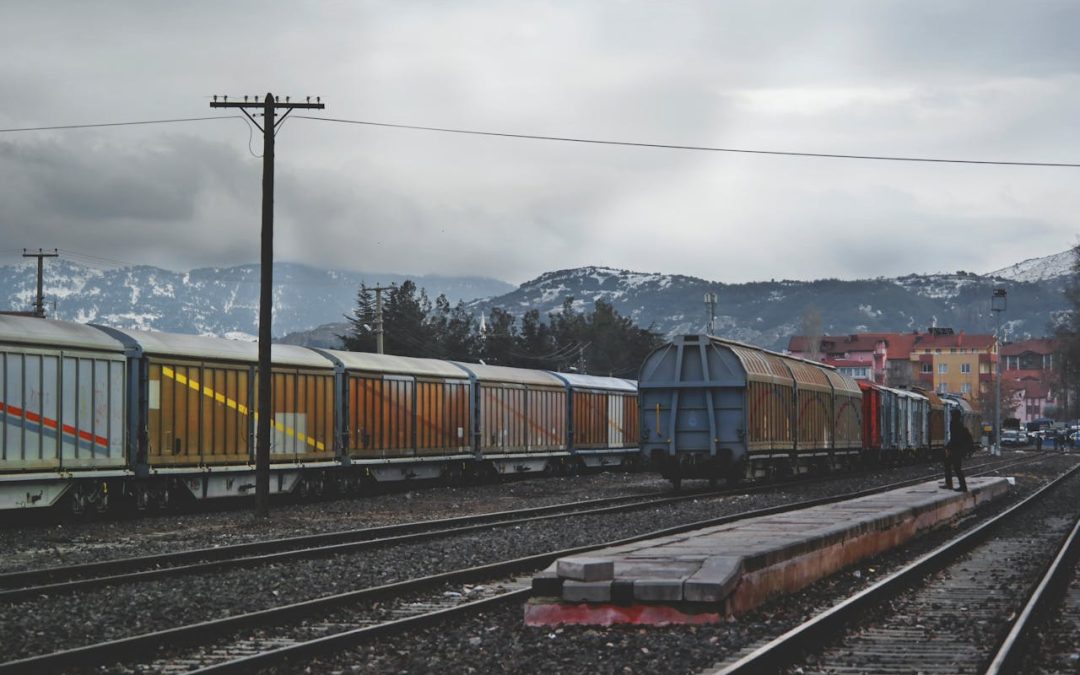Did you know that 77% of global freight is transported via truck, with only 17% being moved by rail?
As freight forwarders, it’s our job to find the best freight solution to meet your needs. Wondering which is right for you? We cover road freight vs rail freight in this comprehensive blog.
Rail Freight
Rail freight sees goods moved from A to B via trains and railroads on land.
Freight trains can be up to a whopping half a mile long. They transport goods in intermodal containers – standardised containers that can be quickly and easily unloaded and reloaded between freight modes – as well as specialist containers, using the UK’s huge rail network.
Rail freight is eco-friendly, cost-effective and reliable, and the rail freight industry is growing by 3% every year. Using trains to ship your cargo can form all of the journey or just part of an intermodal solution.
Road Freight
Road freight is the transportation of goods via trucks, vans and lorries both domestically and internationally.
Like rail freight, road freight can be used as a standalone shipping solution or as part of a multi-modal journey, where several modes of freight are used to take a consignment from its origin to its destination.
Road freight is incredibly agile, with the majority of destinations accessible by road, and comes with few limitations. This method gets your shipment straight to the door, without any need for other modes of transport.

Comparing Road Freight vs Rail Freight
When we look at road freight vs rail freight, we can compare them under the following headings…
Cost
When it comes to money, rail freight is more expensive than road freight. Road vehicles are cheaper to buy and fuel than trains and don’t require the use of rail stations and all of the infrastructure that goes with them.
Distance
On distance, road freight vs rail freight holds no comparison. It is faster and often cheaper to ship goods via train over longer distances. Not just that, but with an established rail network spanning the UK and beyond, trains are less likely to come up against delays like congestion, weather-related obstruction and RTAs.
Speed
Rail freight is fast. Shipments travelling from China to the UK can take as little as 18 days!
But when we look at road freight vs rail freight, who wins on speed? Lorries thundering down motorways or freight trains speeding along tracks?
Over longer distances, rail freight is faster. However using road freight saves on time and costs because it provides a door-to-door delivery service, removing the need for loading and unloading between freight modes and handling times.
Because rail freight is unaffected by weather or traffic, it also comes hand in hand with extremely reliable transit times.
Security
Both rail and road freight are highly secure ways of getting your shipment to its destination, but rail freight holds less risk of theft in transit. Trains are also 40% less likely to have an accident during a journey than other modes of transport.
Thanks to heavy investment in Britain’s rail freight industry, performance is soaring across the sector. Impressive tracking systems also enable clients to know where their cargo is throughout the journey and help to prevent theft and losses.
Capacity
Road freight comes way down the list of freight modes if you’re shipping bulky cargo or large-volume consignments. It’s not hard to understand why; the available capacity of even the biggest truck or lorry simply doesn’t compare to that of a container vessel or half-mile-long freight train!
Navigating between road freight vs rail freight when you’ve got large shipments is easy – rail is for you.
Infrastructure
Though the UK’s rail freight industry has had over £20m pumped into it over recent years, it is still being developed in some areas. On the other hand, our road network provides a more reliable method of moving goods.
Eco
We all know that driving road vehicles is high on emissions, and that doesn’t stop at domestic vehicles. But which is greener? Road freight vs rail freight?
It might surprise you to know that on average, rail freight produces 76% less carbon than the equivalent journey by road. How’s that for a number! By opting for rail freight you up your businesses’ green reputation, reduce your carbon footprint and help save the planet.
Road Freight Vs Rail Freight – Which Is Right For You?
Generally speaking, moving goods via road is still a top choice for many businesses. Road freight is agile, fast and cost-effective for short and medium-distance deliveries and can take shipments right up to the door of the destination.
Rail freight, however, has several compelling advantages which means the industry is growing in demand at quite a pace. One such benefit that is hot on the lips of freight companies worldwide is its low impact on the environment.
Multimodal shipping solutions combine the best of both worlds for flexible, reliable shipping, especially when goods are travelling from further away.
Millennium Have Got You Covered
We’re good at what we do. Millennium will always find you the most appropriate method of getting your goods where they need to be, whether you’re looking to prioritise speed, cost or the environment.
Struggling to navigate the world of shipping? Need clarification on all of the lingo and acronyms? Get in touch! We’re here to help.

